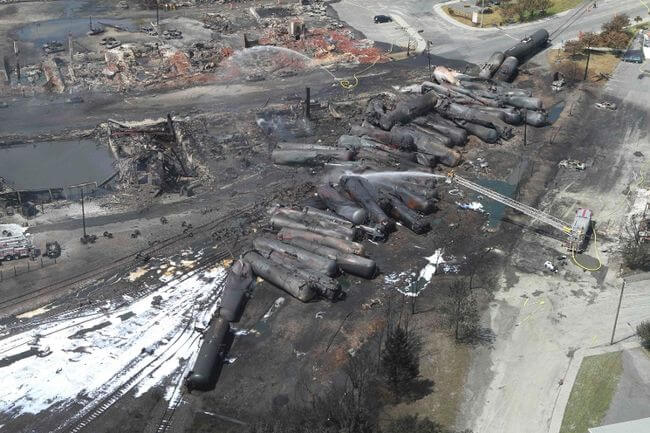theQuestion: In light of the Quebec disaster, should we transport more Canadian oil by railway or pipeline here in B.C.?*
Does anyone still think transporting oil by train is a good idea? Following the spectacular and horrific disaster in Lac-Mégantic, Que., I should hope not. The fiery explosion, which destroyed this small, idyllic Canadian town and took so many lives, underscores the urgent need to accelerate the approval and construction of new pipeline capacity across the country.
Just days before this mind-numbing catastrophe happened, I was discussing pipelines with a friend who is a representative of the B.C. business community. Since pipelines are a hot-button issue, I was looking for some insight in preparation for debating Laila on the issue. Expecting to hear the usual pro-pipeline argument for jobs and economic growth, I was surprised the conversation immediately turned to rail transport of crude oil and the concern about safety. Many Canadian towns and cities have been built around the railway, and an increase in rail transport means an increase in the risk of devastating disasters like the one in Quebec. Delays on the approval of construction for the pipelines proposed in B.C., and across the country, only increase the risk.
The fact is transporting oil by pipeline is not only the easiest and most cost-effective method, but also the safest. According to Diana Furchtgott-Roth, senior fellow at the Manhattan Institute for Policy Research, pipelines result in fewer oil spills and loss of life than moving oil by rail or road. In an issue brief released this past June, in support of the Keystone pipeline, Furchtgott-Roth breaks down the data comparing serious incidents and injuries by pipeline versus rail. The data shows transporting oil by rail is significantly more dangerous than by pipeline for both people and the environment.
North American production of crude oil is increasing dramatically and this vital product must be moved to market. Delays in building new pipeline capacity means moving more oil by rail car. In 2009, according to the Railway Association of Canada, there were only 500 tanker car shipments of oil in Canada. This year it’s estimated 130,000 tanker cars will travel across the country. In the next few years that is expected to double. Inevitably, this means more oil travelling through B.C. towns and cities by rail. That is, unless we build more pipelines.
Environmental advocates, First Nations and governments must quickly find common ground to accelerate the construction of new pipeline capacity. We live in an advanced industrial economy and it is impossible to avoid transporting fuels for energy.

